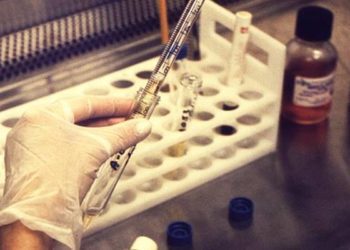DNA sequencing may inform diagnosis and management of kidney disease
1. Whole exome sequencing (WES) provided diagnosis for a subset of patients with chronic kidney disease (CKD).
2. Identification of certain mutations, via WES, changed the clinical management of CKD patients.
Evidence Rating Level: 2 (Good)
Study Rundown: Over the past 10 years, we have seen significant advances in genetics technology that allows us to better understand the cause and potential treatments of various diseases. CKD is one such condition that DNA sequencing may greatly influence the diagnosis and management. While there is significant morbidity and mortality related to CKD, early-stage CKD tends to be clinically silent. Diagnosing CKD at an earlier stage may have beneficial impacts in terms of patient prognosis. The authors of this study aimed to assess the diagnostic utility of WES in CKD and its potential effect on clinical management. In general, they observed that through applying WES to patients with CKD of unknown cause, they were able to determine diagnostic mutations. This study has several limitations. Of note, the study had a small sample size and therefore cannot be generalized to CKD patients on a population level. By conducting WES analysis of more diverse cohorts of CKD, the authors will obtain information regarding the applicability of WES to the broader CKD population and its overall diagnostic yield in nephrology practice. The results of this study suggest that WES may be of clinical utility to the diagnosis and management of CKD in the future.
Click to read the study in the Annals of Internal Medicine
Relevant Reading: Exploring the genetic basis of early-onset chronic kidney disease
In-Depth [prospective cohort]: In this observational pilot study, the authors included 92 adult patients with CKD with a clinical diagnosis either compatible with a Mendelian genetic disease, a familial nephropathy of unclear cause, or unexplained kidney failure. These participants were selected from a group of 344 patients from outpatient nephrology clinics. WES was applied to these participants and a panel of nephrologists and molecular geneticists interpreted the data. In total, the authors observed that 24% of patients (22 out of 92) received a diagnosis through using WES. Several important mutations were observed, including loss-of-function mutations in the gene PARN. Identifying these genetic diagnoses resulted in specific changes to patient’s medical management, including alteration of treatment, increasing screening for certain conditions, and providing incentive to screen family members.
Image: PD
©2017 2 Minute Medicine, Inc. All rights reserved. No works may be reproduced without expressed written consent from 2 Minute Medicine, Inc. Inquire about licensing here. No article should be construed as medical advice and is not intended as such by the authors or by 2 Minute Medicine, Inc.



![Maternal cell-free DNA sequencing superior to standard aneuploidy screening [CARE Study]](https://www.2minutemedicine.com/wp-content/uploads/2014/02/47-karyotype-350x250.jpg)



